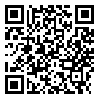Volume 26, Issue 4 (10-2018)
Avicenna J Nurs Midwifery Care 2018, 26(4): 211-218 |
Back to browse issues page
Download citation:
BibTeX | RIS | EndNote | Medlars | ProCite | Reference Manager | RefWorks
Send citation to:



BibTeX | RIS | EndNote | Medlars | ProCite | Reference Manager | RefWorks
Send citation to:
Azizi A, Khatiban M, Mollai Z, Mohammadi Y. The Effect of Informational Support on Satisfaction of Family Caregivers of Patients with Hemiplegic Stroke from Receiving Information . Avicenna J Nurs Midwifery Care 2018; 26 (4) :211-218
URL: http://nmj.umsha.ac.ir/article-1-1831-en.html
URL: http://nmj.umsha.ac.ir/article-1-1831-en.html
1- Assistant Professor, Chronic Diseases (Home Care) Research Centre, Hamadan University of Medical Sciences, Hamadan, Iran
2- Associate Professor, Department of Medical Surgical Nursing, School of Nursing and Midwifery, Hamadan University of Medical Sciences, Hamadan, Iran
3- MSc. Student, Department of Critical Care Nursing, Student Research Committee, School of Nursing and Midwifery, Hamadan University of Medical Sciences, Hamadan, Iran ,Zhanet2811@gmail.com
4- Assistant Professor, Department of Epidemiology, School of Health, Hamadan University of Medical Sciences, Hamadan, Iran
2- Associate Professor, Department of Medical Surgical Nursing, School of Nursing and Midwifery, Hamadan University of Medical Sciences, Hamadan, Iran
3- MSc. Student, Department of Critical Care Nursing, Student Research Committee, School of Nursing and Midwifery, Hamadan University of Medical Sciences, Hamadan, Iran ,
4- Assistant Professor, Department of Epidemiology, School of Health, Hamadan University of Medical Sciences, Hamadan, Iran
Abstract: (9858 Views)
Introduction: Satisfaction of patients’ families is one of the criteria for assessing the quality of nurses’ performance. Considering the low satisfaction of stroke patient’s families in received information, the present study was done to determine effect of informational support on satisfaction of family caregivers of patients with hemiplegic stroke from received Information.
Methods: In this semi-experimental study, 78 family caregivers of patients with hemiplegic stroke admitted to the neurology department of Farshchian (Sina) Hospital of Hamadan (2017), were selected by Convenience sampling, and were divided continuously into two groups: control (n=38) and intervention (n=40). The research intervention was conducted from third to eleventh day of hospitalization. Information was provided about the department, equipment, patient status, home care individually and as a group method. The control group received routine care. Satisfaction of family caregivers was measured before and after the intervention in both groups. The data collecting tool was a questionnaire of demographic characteristics of the caregiver and patient, a researcher-made questionnaire to assess the satisfaction analyzing the received information. Data were analyzed using SPSS16.
Results: Groups were similar in terms of demographic variables. There was a significant difference between before (79.15±21) and after (121.4±9.93) intervention at satisfaction scores in intervention group, and between the two groups (intervention and control) after intervention (P<0.001).
Methods: In this semi-experimental study, 78 family caregivers of patients with hemiplegic stroke admitted to the neurology department of Farshchian (Sina) Hospital of Hamadan (2017), were selected by Convenience sampling, and were divided continuously into two groups: control (n=38) and intervention (n=40). The research intervention was conducted from third to eleventh day of hospitalization. Information was provided about the department, equipment, patient status, home care individually and as a group method. The control group received routine care. Satisfaction of family caregivers was measured before and after the intervention in both groups. The data collecting tool was a questionnaire of demographic characteristics of the caregiver and patient, a researcher-made questionnaire to assess the satisfaction analyzing the received information. Data were analyzed using SPSS16.
Results: Groups were similar in terms of demographic variables. There was a significant difference between before (79.15±21) and after (121.4±9.93) intervention at satisfaction scores in intervention group, and between the two groups (intervention and control) after intervention (P<0.001).
Conclusion: Informational support is effective on increasing the satisfaction of family caregivers of patients with stroke. Therefore, informational support is recommended as an important nursing intervention.
Type of Study: Original Research |
Subject:
Nursing
Received: 2017/11/25 | Accepted: 2018/01/16 | Published: 2018/03/16
Received: 2017/11/25 | Accepted: 2018/01/16 | Published: 2018/03/16
Send email to the article author
| Rights and permissions | |
 |
This work is licensed under a Creative Commons Attribution-NonCommercial 4.0 International License. |







 gmail.com
gmail.com